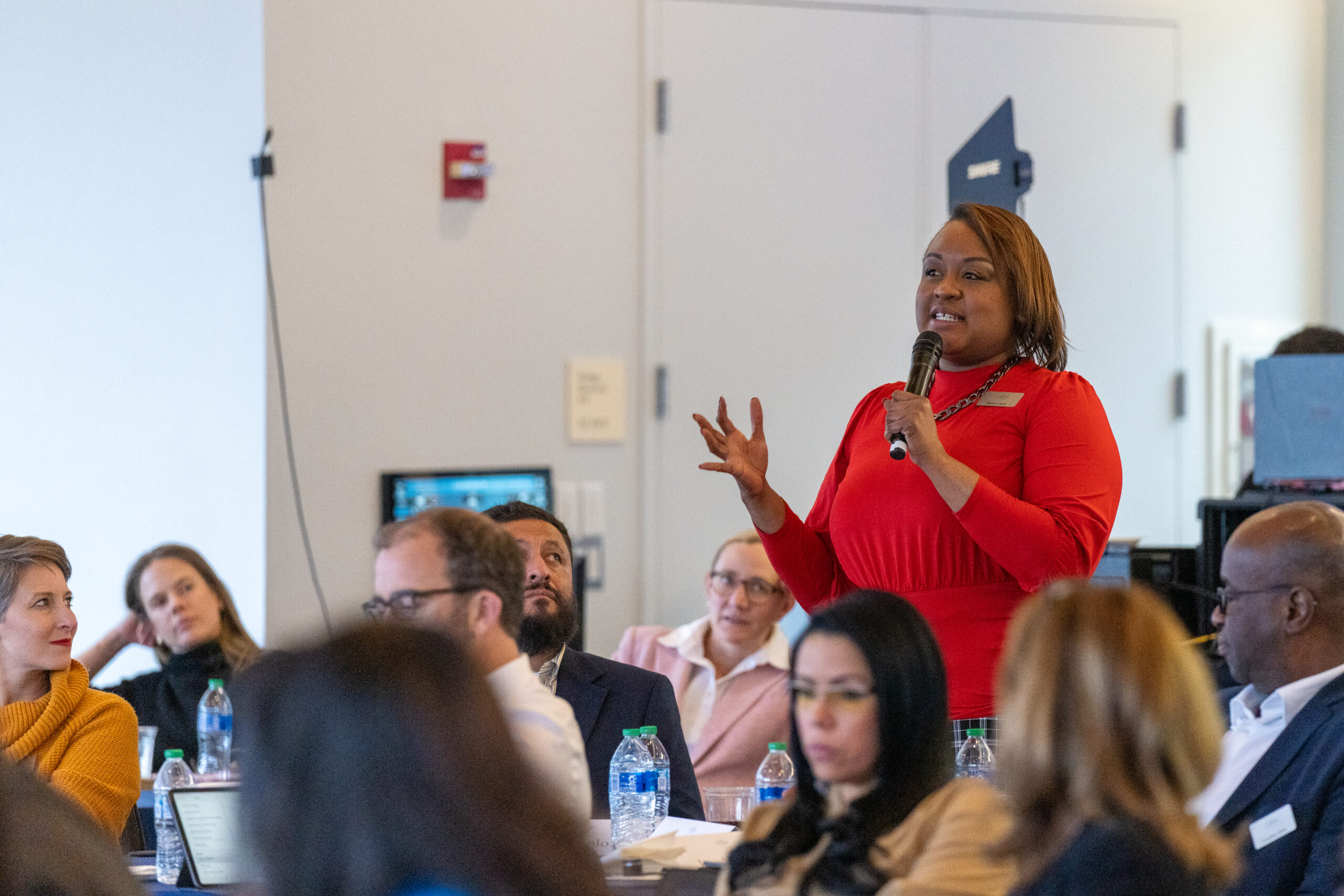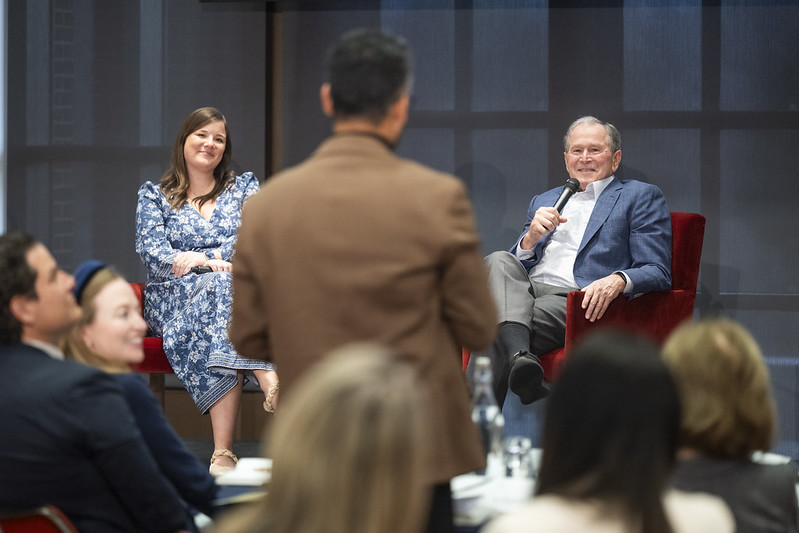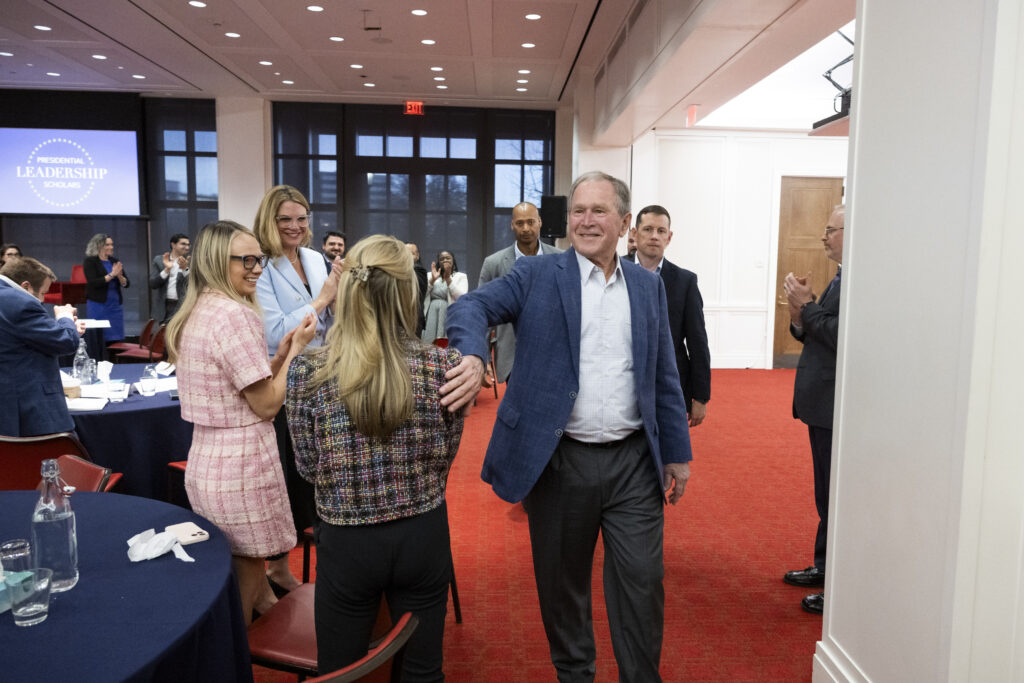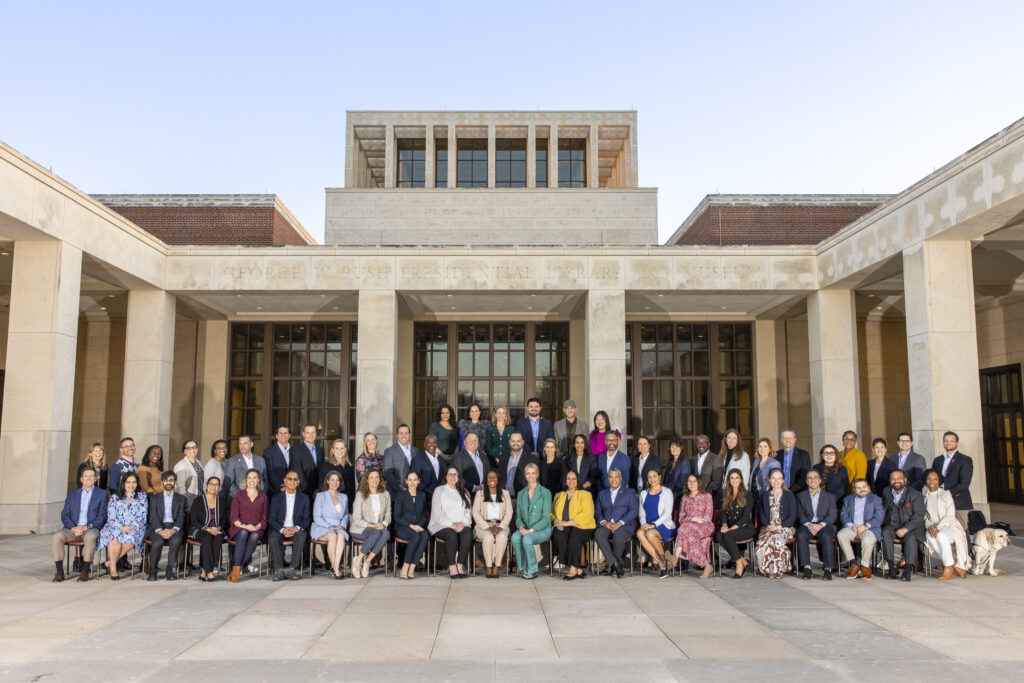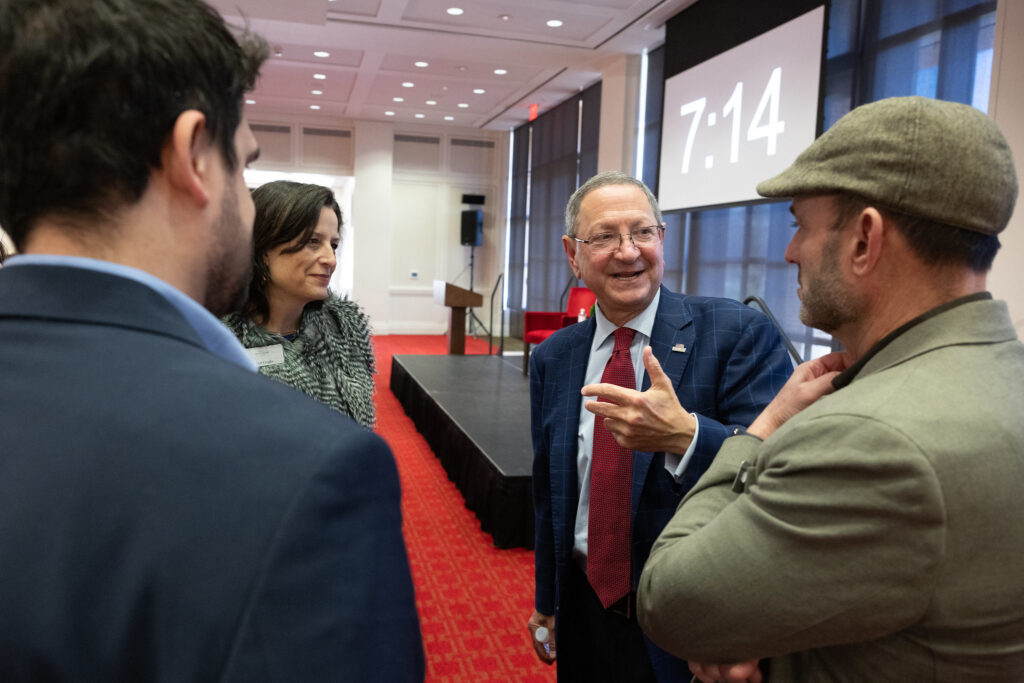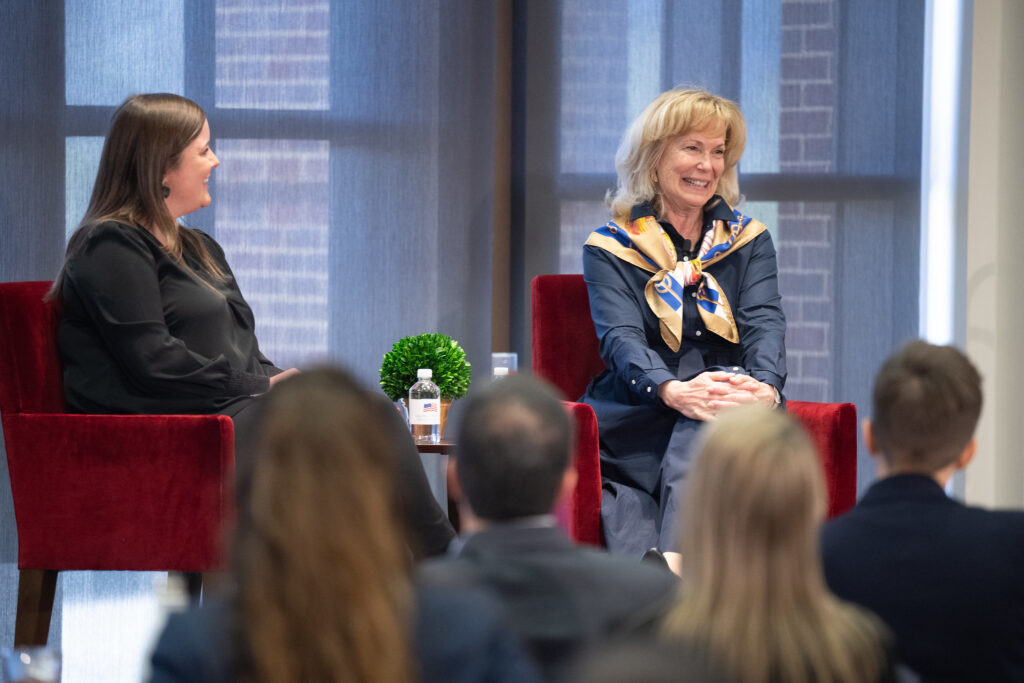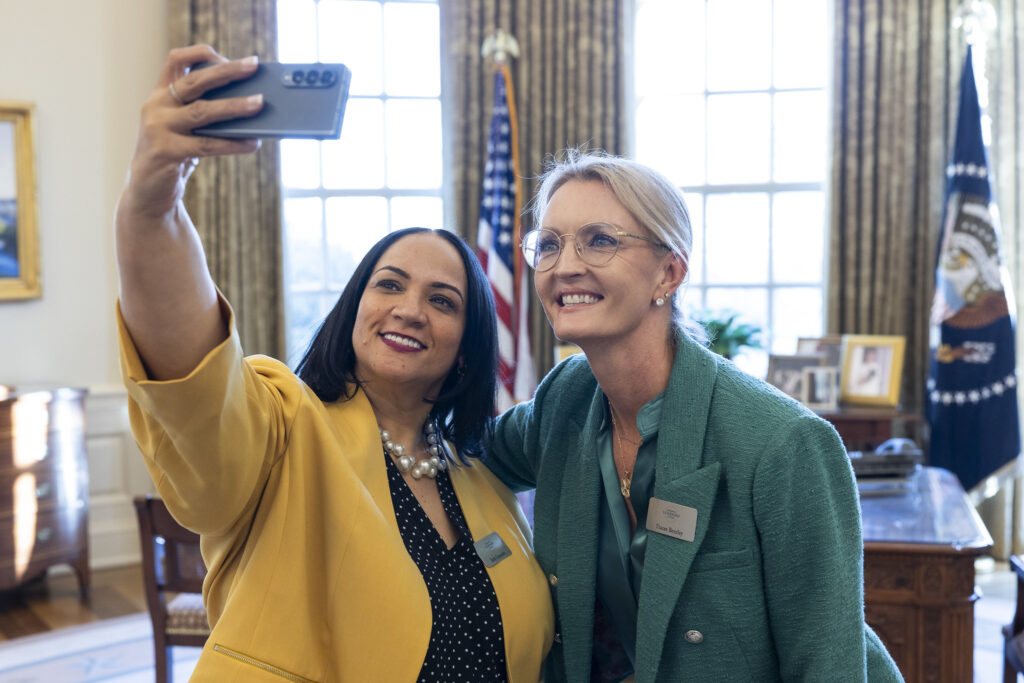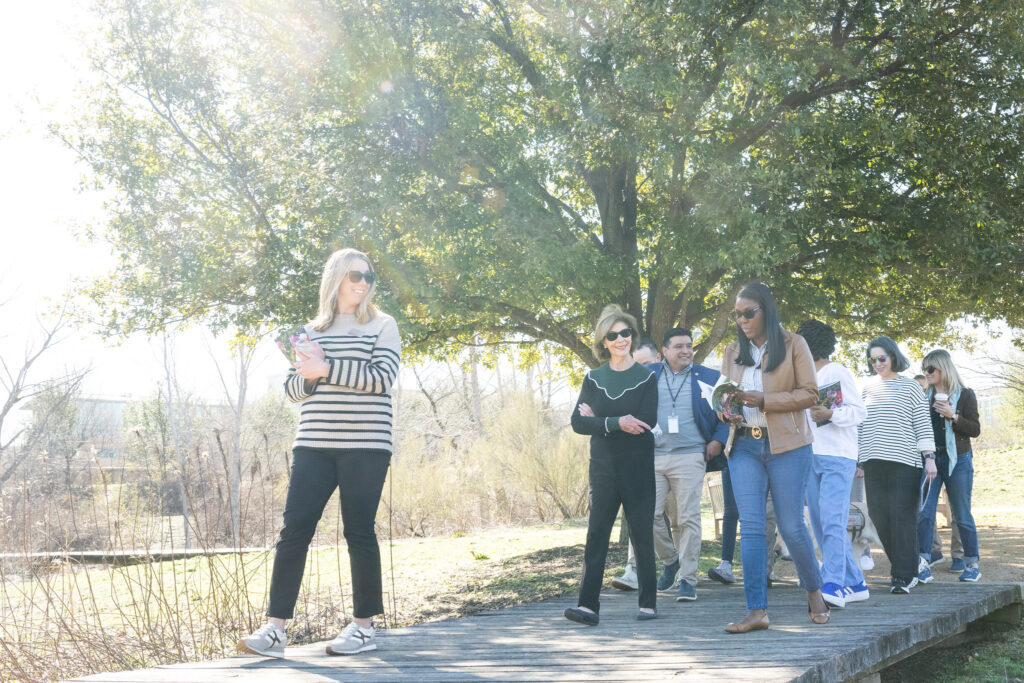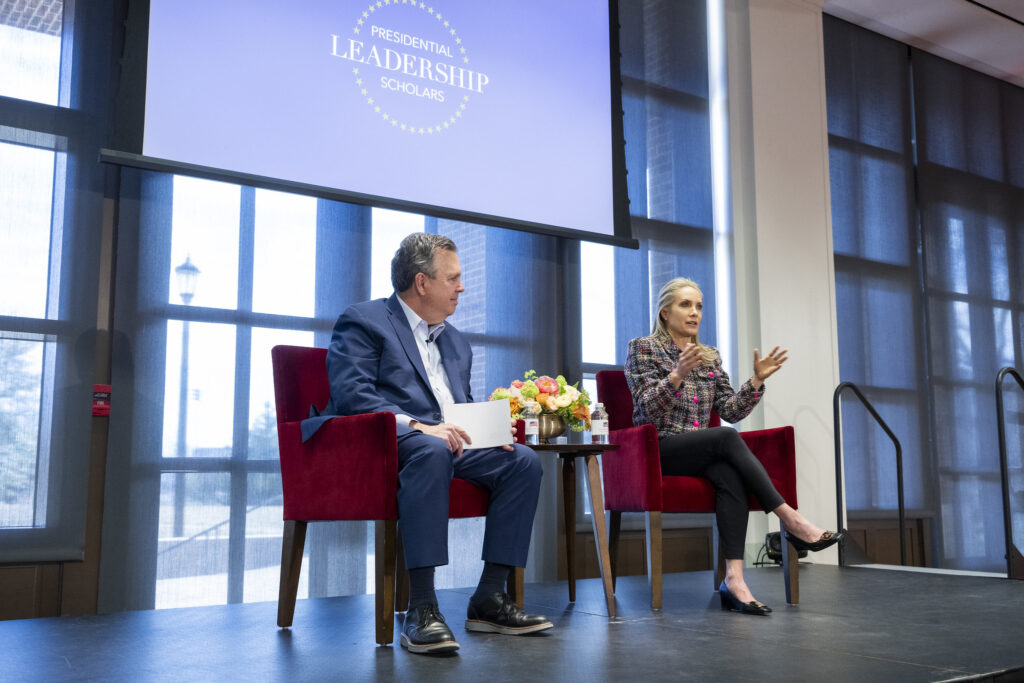Bianca Davis, 2023 Presidential Leadership Scholar and CEO of Dallas-based nonprofit New Friends New Life, shares how the PLS Program shaped and inspired her work to combat human trafficking in Texas.
Please tell us a little bit about yourself and your personal leadership project.
My name is Bianca Davis, and I have spent the last four years of my career serving as Chief Executive Officer of New Friends New Life (NFNL). Founded in 1998, NFNL is a nonprofit organization based in Dallas, Texas, that serves women and girls who have been trafficked or exploited. Before joining NFNL, I served as the Senior Director of Fund and Community Development at Genesis Women’s Shelter & Support – a local domestic violence recovery agency – where I spent seven years leading the development team’s fundraising efforts.
Over the last 14 years, I’ve learned that the stories of domestic violence survivors and survivors of human trafficking are hauntingly similar. Embedded in these victims’ stories are feelings of fear, shame, or guilt; lack of finances or lack of access to finances which keep them tethered to their abuser or trafficker; and an overall sense of feeling trapped and hopeless.
Successful fundraising – which is, in essence, the ability to inspire others to give – lies in one’s ability to tell stories. In other words, how can I tell stories that illuminate the human experience authentically and ethically, encouraging empathy and compassion from others? Although sharing these stories humanizes the survivor’s experience, effective storytelling must be supported by data to shift societal conversations, break generational cycles, and enact change.
Data proves impact and drives policy.
During my time with the DV agency, I learned of the City of Dallas’ collaboration with local law enforcement and nonprofits to create the Domestic Violence Dashboard, and I began thinking of how helpful it could be to gather data about human trafficking in Dallas, too. An HT Dashboard would answer questions like, how and where is sex trafficking happening, and to whom? I knew that this information could help agencies, civic leaders, and law enforcement prove impact and drive policy, but I did not know that it would be such a rare project to implement. We believe that Dallas’ HT Dashboard is one of only three of its kind in the country.
Please give us an update on what you have been working on since completing the Presidential Leadership Scholars program.
We held our first convening between the City of Dallas’ data team, City Council members, and antitrafficking agencies around the same time I began my PLS journey. Module Two was a defining session for me and my personal leadership project, because it was when I fleshed out my core statement, which ultimately became an affirmation:
I am working with the City of Dallas to illuminate the impact of sex trafficking on our community, using data. This dashboard will inform law enforcement, advocates, and lawmakers about how and to whom this crime happens so that we can allocate resources to prevent and reduce future victimization while creating a restorative path forward for survivors.
What started as an idea for my PLP became a reality by the end of 2023. In January 2024, the City of Dallas went live on its first ever human trafficking dashboard! It has been incredible to see the collaboration and enthusiasm displayed by the contributing agencies, law enforcement, and civic leaders. I applaud them all for carving out the time and dedicating the resources to trying something fresh and unique.
Since completing the Presidential Leadership Scholars Program in 2023 and launching the human trafficking dashboard in 2024, I have continued to implement NFNL’s strategic plan, which includes forging partnerships and finding resources that allow us to remove the roadblocks trafficking survivors face. Most recently, we opened an onsite learning academy led by our Director of Integrated Learning, to help our members (clients) prepare for and pass their GED exams and undergo other training opportunities to obtain employment. It is inspiring to see the women we serve rise to each challenge and achieve the benchmarks that can set their lives on an entirely new path – one that is free from abuse, exploitation, and shame.
Which lessons learned during the Presidential Leadership Scholars Program have stayed with you the most, and how have you put them into action?
We were challenged to ask ourselves, “Why would a reasonable person believe that?” This question has forced me to pause and extend grace during conversations and interactions and couldn’t be more timely for this charged and tense season we collectively find ourselves in. I appreciate the phrasing and intent of this question because it is rooted in respect and a desire to understand, which are core facets of being a good leader.
What drives your passion for expanding New Friends New Life, and in what ways would you like to see it grow in the next year?
One of the things that attracted me to New Friends New Life was the opportunity I knew I would have to reintroduce survivors to the community. My passion for this work is driven by what happens when I help people connect the dots about how and why this illegal industry thrives. As a board member always says, “Once you know about human trafficking, you cannot unknow it; once you see it, you cannot unsee it.”
Debunking the myths around sex trafficking and shining a light on the issue inspires people into action, and that action in turn, saves and changes lives. In 2024, NFNL provided case management, trauma-informed counseling, and economic empowerment to 342 women and girls.
Over the next year, we will be expanding Liberty Street Garden, which is a social enterprise NFNL developed in partnership with The Meadows Foundation and Bonton Farms. This beautiful addition to our programming allows members to work in the garden, gaining income and work experience as a bridge employment alternative or precursor to joining the external workforce. This expansion will include building a welcome center, holding Saturday morning farmers markets to sell our organically grown fruits and vegetables, and sourcing produce for local restaurants, hotels, and other companies.
It’s been one year since the City of Dallas launched its human trafficking dashboard. Can you explain the process of creating the dashboard, why it’s important, and what has been accomplished as a result since its launch?
One of the statements I have written down in my PLS notebook is, “if you want to convince people, you have to tell them a story.” The human trafficking dashboard is important because it tells a story, using data, of where, how, and to whom sex trafficking happens, and serves as a heatmap of where we need to invest resources and shift policies to disrupt this industry. Sadly, Texas ranks second in the nation and Dallas ranks second in the state for the highest number of trafficking victims. Using tools like the HT Dashboard, we are overlaying the law enforcement data with the service provider data to tell the full story of the impact of sex trafficking in our community.
Another benefit of the HT Dashboard is having local, fresh data that reflects the national numbers. For example, we know that sex trafficking disproportionately affects women and girls, especially women and girls of color. Our local dashboard data reflects the national statistics – of all reported cases of sex trafficking, 94% were female, and 47% were Black women. The similarity in the statistics helps build trust in the data which proves impact and drives policy.
For the second year in a row, the Dallas skyline was lit up in blue on Jan. 11 in recognition of Human Trafficking Awareness Day, also known as Wear Blue Day. This show of support and solidarity highlights both a startling reality and a reassuring truth. Human trafficking is a pervasive crisis that it is happening right here in our own backyard, but initiatives like the HT Dashboard is another example of how Dallas is fighting back.
